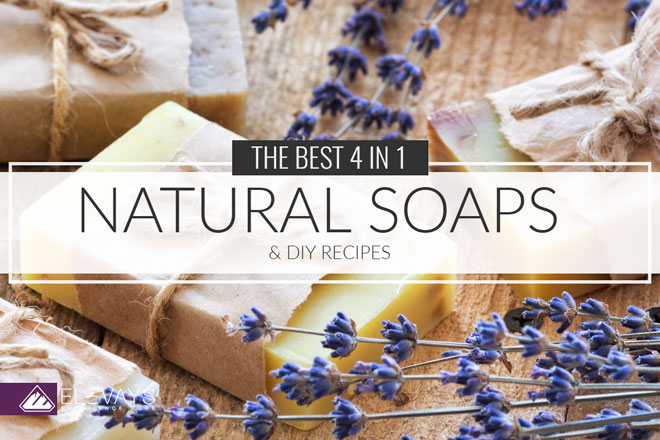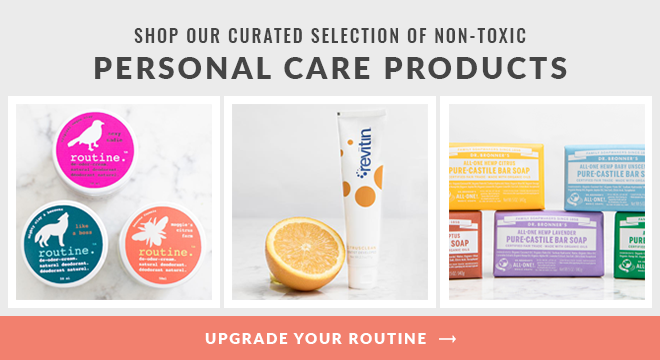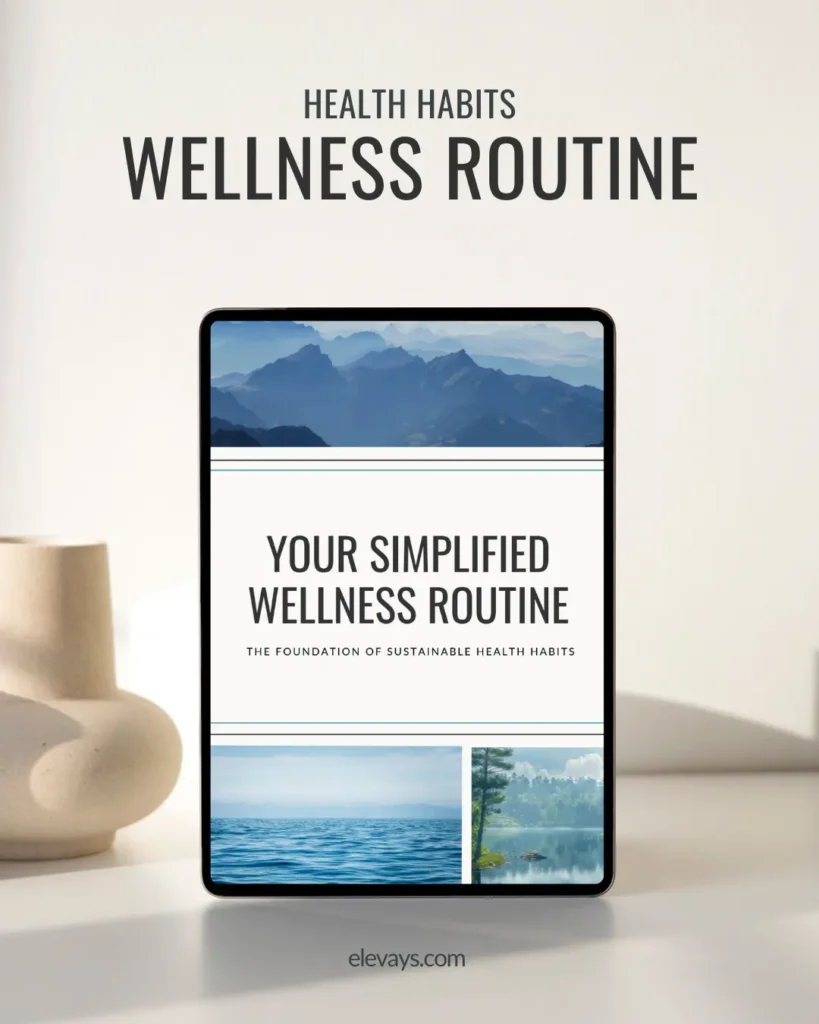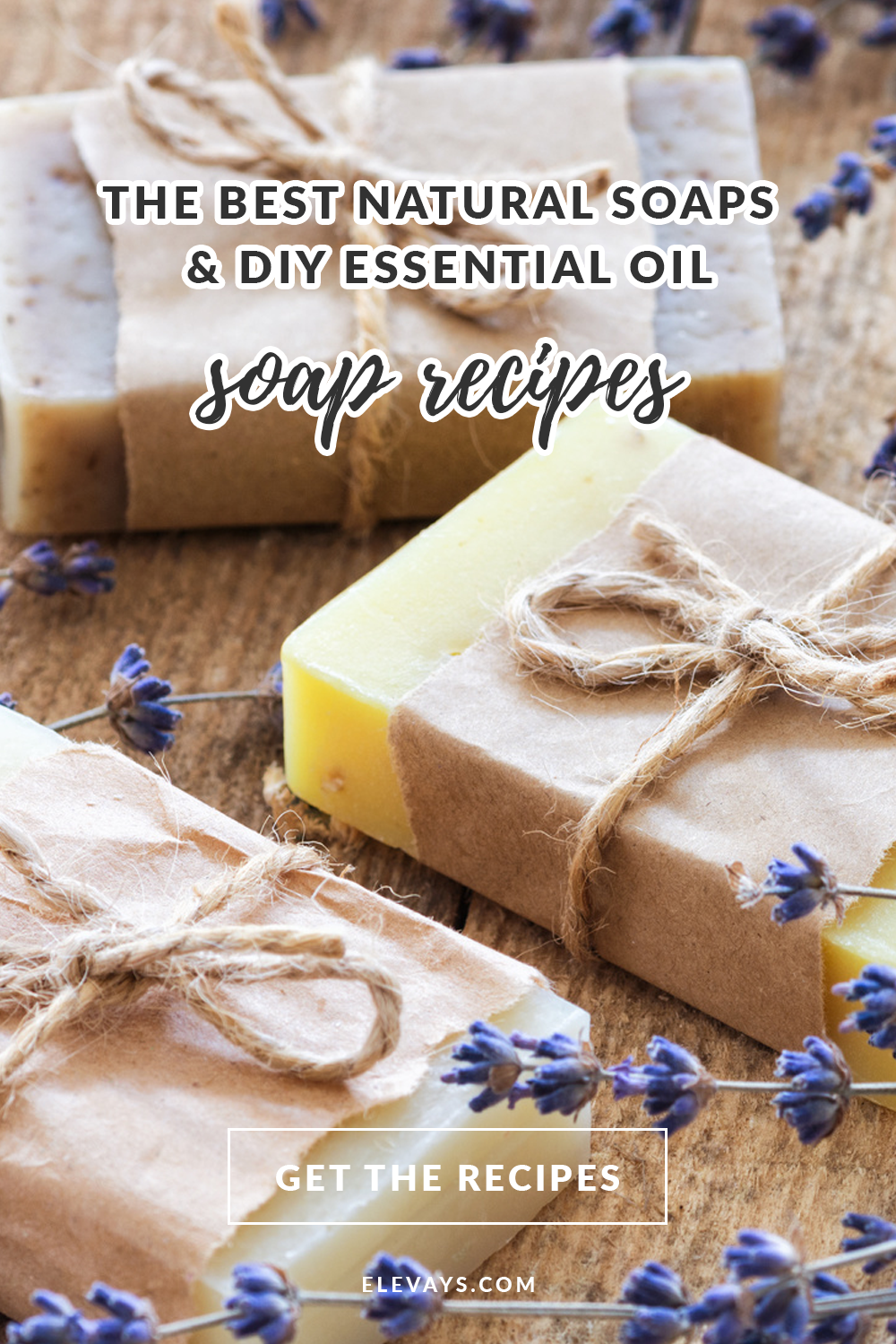Usually when people start to work on cleaning up their lifestyles and going more green, products like soap or shampoo are the last thing to go. You can have all organic produce in your fridge and essential oils diffusing in the bathroom, but if there is a conventional disinfecting hand soap sitting on the sink, you’re still exposing yourself and your family to toxic chemicals multiple times a day.
I know we wanna kill the germs on our kids hands, especially when they’re in school, but there is another way. Essential oils can also be far more effective at disinfecting than the anti-bacterial hand soaps you find at the grocery store.
TRUTH BOMB:
You’re
Already killing it!
If You Were More Consistent With Your Wellness Routine, You’d Be Unstoppable.
And let’s not forget your face wash and shower gel. Even some of the so-called natural brands have ingredients in them that you do not want on your sensitive parts- or any parts for that matter… And no matter what you’ve got going on with your skin: dry, oily, or sensitive there is a natural soap with essential oils for it.
So I’m going to share with you today why you should consider changing over to natural soap, or better yet, making your own. It is literally so easy to do this yourself and that way you know, every time, what ingredients are going on your family’s skin.
So keep reading to get tons of information about natural soap, the best all-natural brands for every skin type and some of my favorite recipes.
Why Use Natural Soap?
The advantages of using a soap with all natural ingredients are: avoiding endocrine disrupting chemicals and fragrance, smelling more natural and less synthetic, and soothing the skin instead of stripping away its natural moisture.
The first benefit I listed is probably the most important. You should use an essential oil soap because if you choose well (or make your own) it will be free of parabens, sulfates and synthetic fragrances. Sulfates are what makes your shampoo or soap foamy and parabens preserve it. But these ingredients can also cause allergic reactions, especially for babies and young children.
Parabens have also been linked to breast cancer (1) and are known endocrine disrupting chemicals. This means that they mimic hormones in the body, which then throws off the delicate balance of our own natural hormones.
Then there’s the fragrance part. It is not required by law to list what exactly is inside of a fragrance, so when you see that listed on the label beware. Some of the toxic ingredients found in synthetic fragrances are phthalates, benzenes and even formaldehyde (2). These chemicals disrupt hormones and have even been linked to cancers, infertility, and diabetes.
The chemicals and toxins in conventional soap carry a ton of dangers you don’t want to expose your family to, and luckily, avoiding them is easy and totally affordable.
A soap scented with essential oil instead of synthetic fragrance has the advantage of keeping you safe from toxins and providing the health enhancing benefits of aromatherapy as well. The scent of essential oils can uplift your mood, combat anxiety, relax you for sleep and even ease things like headache and nausea.
Essential oils also have topical benefits, which is why they work great in soaps! Keep reading because I’m going to break down what essential oils to use in natural soaps for any skin type from sensitive to oily.
My Favorite Natural Soaps: Dr. Bronner’s
Ok, so we love all of Dr. Bronner’s products because they are fair-trade and organic, but they are also gentle enough for my little ones AND insanely versatile!
Their sugar hand soap may say “hand soap” on it, but this is a 4-in-1 pump soap perfect for washing hands, face, body, and hair! As you know, conventional soaps are full of toxins and antibacterial agents that no one needs, while Dr. Bronner’s sugar soap is made without toxins and only the best ingredients.
So whether you want to put it next to your kitchen sink, bathroom skin, or in your shower- you will get use out of it. We love it in our kitchen and shower! It’s fragrance free, but that doesn’t mean it doesn’t smell good. The aroma in these refreshing soaps comes from essential oils – not a petri dish. Other standout ingredients are organic coconut, olive and hemp oils which give this soap its creamy texture.
It also includes sugar and organic white grape juice that keeps your skin nourished, smooth, and hydrated. This is one that our entire family loves. So ditch your conventional hand soap and upgrade to this better option today!
If you’re more of a bar soap person, check out Dr. Bronner’s Soap Bars A bonus to this soap bar is that it’s not just for our hands: we can use it on our faces and hair! And it works like a charm. It’s also amazing for people with skin issues like eczema or acne and has reviews like “the only soap I can use” , “refreshing”, and “effective”.
Natural Soap for Your Skin Type
1. Natural Soap with Essential Oils for Normal Skin
Maybe you’re not too dry or too oily and you aren’t dealing with acne or trying to combat aging. In this case, you’ve got it pretty easy when it comes to essential oils and can play around with whatever scent appeals to you.
Whether you’re looking for a natural soap for your body or face, the best essential oil soap for normal skin might contain bergamot, ylang ylang, lavender, or peppermint. None of these are too drying or moisturizing, but figure out what works best for you! An excellent natural soap for children’s skin might contain lavender, calendula or roman chamomile. Calendula is one of these incredibly gentle essential oils that is also anti-microbial.
2. Natural Soap with Essential Oils for Dry Skin
The dry or aging skin bunch often fall under the same category, and luckily there are some essential oils that can cover both of these issues. So what kinds of essential oils are beneficial in soaps formulated for gently cleansing dry skin?
The best essential oil soap for dry skin might include sandalwood, rose, roman chamomile or frankincense. Rose works to improve skin elasticity, texture and seals moisture into the skin to prevent dryness.
Essential oil soaps formulated to keep dry skin hydrated could also contain myrrh, carrot seed or rosehip seed (which is also a great carrier oil for dry skin types!) Myrrh is an emollient and anti-inflammatory that works great for chapped or irritated skin. Carrot seed is incredible for aging skin, and it helps encourage exfoliation and skin cell turnover without drying it out.
3. Natural Soap with Essential Oils for Oily Skin
Now for my oily and acne prone people. I’m telling you, essential oils are the very best when it comes to killing the bacteria on your skin that causes breakouts, healing blemishes and helping to dry out excess oil. The best essential oils in soap formulated for oily skin are tea tree, geranium, wild orange (or any of the citrus family).
Tea tree kills bacteria, encourages skin healing and helps minimize breakouts. The citrus family regulates oil production (surely you know how people love to use orange oil as a kitchen de-greaser?!) Well, it works on the skin too. Word of warning though: orange and other citrus oils can also increase photosensitivity, making skin far more likely to burn in the sun. So wear your organic sunscreen folks! Geranium eases inflammation and is slightly astringent which can help oily skin look smoother and less greasy.
4. Natural Soap with Essential Oils for Sensitive Skin
This is one of the more challenging skin types because you could have sensitive skin that is also oily, or dry or acne prone. Luckily if you choose the right natural soap, there are essential oils that work for any of these combinations. So what kinds of essential oils are beneficial in soaps formulated for exfoliating sensitive skin?
The best essential oil soap for sensitive skin might have lavender, neroli, roman chamomile or carrot seed. Roman chamomile or carrot seed are perfect for sensitive skin that’s also dry. They will protect the skin, ease inflammation and soothe redness. Neroli and lavender would be better for skin that is more oily or acne prone and sensitive.
If you have extra sensitive skin (or you want to use it on your newborn) try Dr. Bronner’s Baby Unscented! (One of my favs)
5. Natural Soap with Essential Oils for Disinfecting
If you want a natural soap that is great at killing germs, look for essential oils like tea tree, lemon, thyme, eucalyptus, and peppermint. Thyme is potent enough to kill salmonella and tea tree essential oil can kill staph. Peppermint is a great all around antimicrobial that even disinfects the air.
Any of these will work in a homemade natural soap, and will protect you and your family during cold and flu season, while also keeping you safe from the toxins in conventional soap products.
DIY Natural Soap Recipes with Essential Oils
You don’t need to learn the whole art of soap-making to create some non-toxic soap at home. If you want to know how to make natural soap, it can be as easy as throwing a few ingredients together and shaking them up. And often liquids are more pure than solids, because they don’t require lye.
What you will need for all of these recipes are a good liquid natural soap as the base. My absolute favorite is Dr. Bronner’s castile soap. This company is ethical, affordable and makes some of the most pure natural soap out there. If you want one with essential oils already added you can try their wide variety of hand soaps. If you’d like to make your own, I’d recommend the plain unscented kind.
Check out our Ultimate Essential Oils Starter Kit that has everything you need to make the perfect all-natural soap!
Body Wash for Normal Skin
- 4 oz glass bottle
- ⅓ cup of unscented liquid castile soap (like Dr. Bronners)
- ⅛ cup of purified water
- 10 drops of peppermint essential oil
- 10 drops of wild orange essential oil
Add all of the ingredients to the glass bottle and shake well to combine. Not only will this body wash leave your skin feeling squeaky clean, but the scent is uplifting and refreshing as well. I love orange and peppermint together!
And one of my favorite tips? When this bottle runs out, you can use the same recipe and just switch out the essential oils to something like lavender and bergamot.
Anti-Bacterial Hand Soap
- 6 oz glass soap bottle with pump
- ½ cup of unscented liquid castile soap
- ¼ cup of purified water
- 12 drops of tea tree essential oil
- 12 drops of rosemary essential oil
Another super easy DIY option, simply combine all the ingredients and shake well! This is a great natural soap for men, women and children as the scent is invigorating and not too floral. It is also highly antimicrobial and sure to kill off all the germs.
Creamy Cleanser for Dry Skin
- 4 oz glass glass jar
- ⅛ cup of castile soap
- ¼ cup of purified water
- 2 tablespoons of shea butter
- 10 drops of rose essential oil
- 10 drops of frankincense essential oil
This cleanser is seriously decadent, but requires a little more effort. Heat a pot of water over the stove and place a pyrex dish inside of it. Add the shea butter and allow it to melt fully. Then add the soap, water and essential oils and combine well with an immersion blender. I make it in small batches because without preservatives this cleanser will stay good for about 3 months.
Foaming Cleanser for Oily Skin
- 4 oz glass bottle
- ⅓ cup of liquid castile soap
- ⅛ cup of purified water
- 10 drops of tea tree essential oil
- 10 drops of wild orange essential oil
Combine, shake well, and you’ve got a natural soap cleanser that will regulate oil production and kill acne causing bacteria!
Gentle Cleanser for Sensitive Skin
- 4 oz glass bottle
- ⅓ cup of liquid aloe vera gel
- ⅛ cup of castile soap
- 10 drops of roman chamomile essential oil
- 5 drops of neroli essential oil
Again, all this recipe requires is throwing the ingredients together in a container. Sensitive skin is sometimes irritated by soaps, even the natural ones, so we use far less soap in this recipes than with the others. The aloe and essential oils will soothe any inflammation while still leaving your skin feeling clean.
If you don’t feel like making your own there are a ton of natural soap brands out there to choose from. Again, I think Dr. Bronners is great in either liquid or bar form. But some other really nice organic soap brands are Soapwalla and the higher end True Botanicals.
If you’re looking to pick something up from your local organic grocery store, read the ingredients and make sure there is no “fragrance” listed! The scent should be coming from essential oils and that’s all. And of course, if there is something on there you can’t pronounce, then it probably isn’t really a natural soap.
Okay so I know this has been a ton of information but I hope you feel more clear about natural soap and why it’s so important to make the switch! And it’s always important to me to help you feel confident about where to find non-toxic options or how to make your own.
But now I’d love to hear what you have to say. Do you have any favorite natural soap brands? What about some recipes that have really worked for you and your family? Leave a comment below and let me in on some of your knowledge!
Sources:
- Thorpe, JR (2016). “Why are Parabens and Sulfates Bad? The Science Behind 5 Ingredients You’re Told to Avoid.” Retrieved from: https://www.bustle.com/articles/134107-why-are-parabens-sulfates-bad-the-science-behind-5-ingredients-youre-told-to-avoid
- Rodale, Maria (2017). “Five Must-Knows on the Danger of Synthetic Fragrance.” Retrieved from: https://www.huffpost.com/entry/five-mustknows-on-the-dan_b_4737654







READ the Latest
Health Habits
Health Habits
Longevity
Longevity